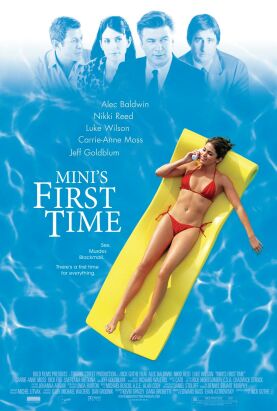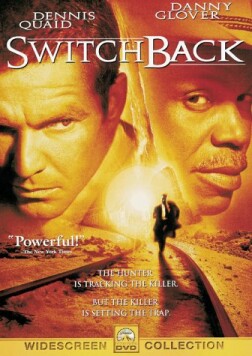Erin Brockovich
It’s sad to see a talented filmmaker like Steven Soderbergh descend to the
quasi-propaganda and pure schlock of Erin Brockovich. Julia Roberts plays
the eponymous Erin, a nasty, unpleasant foul-mouthed harridan meant to be both
attractive and admirable to us because, I guess, she is Julia Roberts and doing
feisty. Be feisty, Julia. And Julia is feisty in the role of a
twice-divorced single mother turned personal injury paralegal who hits the legal
jackpot. And Julia doing feisty has created its own jackpot, giving the picture
a $28.2 million opening-weekend gross—a fact which (not for the first
time) I must confess leaves me baffled and depressed in the same way that Bill
Clinton’s two election victories and Al Gore’s current strength in the polls
leave me baffled and depressed. How is it possible for so many people to be
fooled by these patent phonies?
The film begins with Erin losing her own personal injury lawsuit against a
doctor whose car hit hers because she cannot contain her outburst in court
against the “a****** who hit me.” Then, when she loses, she engages in a
similarly unlovely outburst against her lawyer, Ed Masry (Albert Finney). Ed
must be some kind of masochist, however, or else one of those baffling millions
who apparently find Julia Roberts doing feisty irresistible. He subsequently
offers her a job in his struggling law office, in spite her complete lack of
training or experience and in spite of her more or less constant nastiness to
him and his staff. “I’m smart, I’m hard-working, I’ll do anything and I’m not
leaving here without a job,” she says to him. “Don’t make me beg.” It also
doesn’t hurt that the camera focuses lovingly throughout on Julia’s
unaccustomed, Wonderbra-enhanced cleavage.
And she is able to make use of same, as well as her feistiness, once she is
hired—as Ed finds out when he asks her about how she is going to obtain
some sensitive evidence.”What makes you think you can just walk in there and
find what you need?”
“They’re called boobs, Ed,” she says, feistily.
She is also meant to endear herself to us and to Ed by such hilarious
one-liners at the expense of the latter’s plump secretary as: “I’m not talking
to you, bitch” or “Bite my ass, Krispy Kreeme.” When Ed briefly attempts to fire
her but offers to help her find another job, she tries out her own unique
combination of passive-aggression and aggressive aggression: “You’re just trying
not to feel guilty about firing someone with three kids to feed. F*** if I’m
going to help you.” Of course she is soon hired back, even though Ed doesn’t
know as yet that she has been laying the groundwork for a class-action lawsuit
for hundreds of millions of dollars against Pacific Gas and Electric that will
be the making of both of their fortunes.
The actual courtroom drama of the movie is perfunctory to non-existent. P. G.
and E. is as guilty as giant utility companies being sued by charmingly feisty
lawyers in the movies always are. “This is like David and Whatsisname,” says
awestruck Erin.
“This is like David and Whatsisname’s whole f****** family,” replies Ed.
For Goliath, it seems, has been poisoning the groundwater around one of its
plants with hexavalent chromium and causing all kinds of health problems for
600-odd local residents and employees, all of whom come to look upon a curiously
unfeisty Erin as a friend as well as an advocate. For with them she has quite
the bedside manner—which turns out to be a good thing for her because it
means she has become indispensable to Ed and the litigation partners he has
taken on, whom she also insults and verbally abuses. The actual lawsuit—or
rather the movie lawsuit—is so open-and-shut that Soderbergh wastes little
time on it. He’s much more interested in providing Julia with more opportunities
for being feisty outside the courtroom.
Feisty and sensitive. For the propagandistic side of the film comes
not only with its pretty routine attack on the giant corporation and its
championing of the plaintiff’s bar but also in its championing of working
mothers. Erin’s three adorable moppets are looked after by her boyfriend, a
sensitive New Age biker called George—who is played by Aaron Eckhart in
what may be an attempt to live down his own past as a cinematic a******. Now
he’s just a cinematic moron, given to saying things like “You’re a very special
lady” and “It was really intense” to mark him out as the post-feminist
equivalent of the legendary brainless doll of a housewife. Aaron the simpleton
tries to persuade Erin that her long hours spent collecting evidence against
P.G. and E. might be bad for her kids, but she in effect tells him not to worry
his pretty little head about it.
“I’m doing more for my kids now than when I was living with my parents,” she
tells him—and certainly more than when she was trying to “bend myself
around some man.” Also she’s making lots of money, and lawyer-values—the
values of those for whom well-being is directly translatable into dollars and
cents—permeate the movie. At one point George attempts to leave her (don’t
worry; he’s too stupid to survive on his own), and, immediately after he rides
off on his motorcycle, she is presented with a car and a bonus of $5000. To her
kids she says, “This is our lucky day.”
True, the kids don’t seem altogether as happy about it as they might be, nor
about the long hours Erin puts in trying to nail P. G. and E. But their
complaints too get short shrift: “I’m doing this for us,” she tells them. “Don’t
you want momma to be good at her job?” Of course they do, the little darlings.
At one point, Erin’s son picks up one of the files her mother has been studying
and notices that it concerns the medical history of a little girl of about his
own age. Erin explains that that is why he and his sisters have not been
seeing much of her. She has been helping this poor little
girl—helping, her, in fact, to become a millionaire. “Why can’t her own
mom help her?” asks the child naïvely.
“Because her mom’s real sick too.”
And naturally the kid leaves the room with a big smile on his face, all his
doubts cleared up. That smile is the phoniest thing in this supremely phony
film. But at least it’s got Julia Roberts, with breasts, in revealing clothes
being feisty. What more do you want?
Discover more from James Bowman
Subscribe to get the latest posts to your email.






